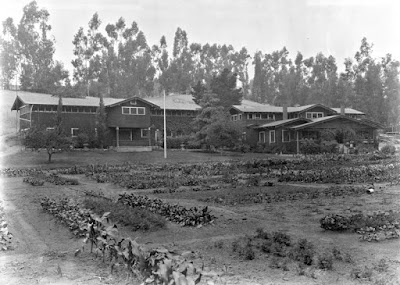 |
| Silverwood surrounded by newsboys. |
Remembering his difficult years as a newsboy in New York, Frank Silverwood thought of a way to use music to change the lives of newsboys throughout the country. In 1909, he made an offer to an initial group of 500 newsboys: He would send them six copies of a popular song, which they could sell for 25 cents each. Of the resulting $1.50, 25 cents went to the publisher, 25 cents went to the newsboy, and Silverwood used the remaining $1 to start a bank account for the lad. If the account remained open for five years, Silverwood would deposit a dollar of his own for every dollar added by the boy in the interim. By 1920 he had already given away countless thousands of dollars to some 12,000 newsboys across the country.
Although he was a benefactor to poor newsboys and various community charities and even served as president of the Strickland Home for Probation Boys, Silverwood had long shunned personal publicity for these efforts. But when word got out about his newsboy project, he found that other wealthy businessmen were copying him. Seeing that he could do even more good by inspiring others to get involved, he began consenting to media interviews. Silverwood’s became known as “the store with a conscience.”
 |
| Strickland Home for Boys orphanage, Highland Park. (Photo courtesy Los Angeles Public Library) |


No comments:
Post a Comment